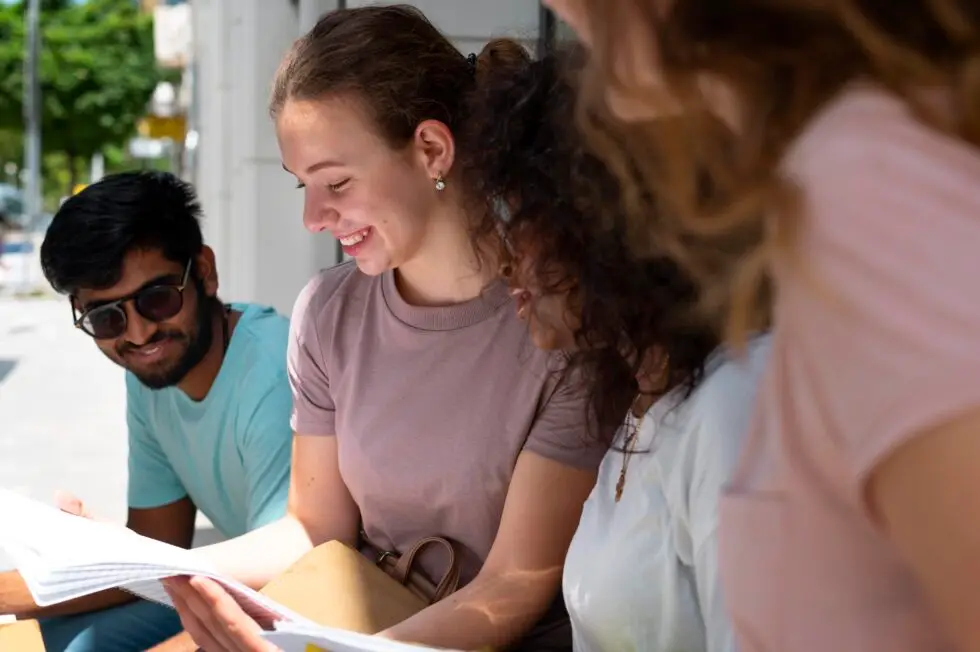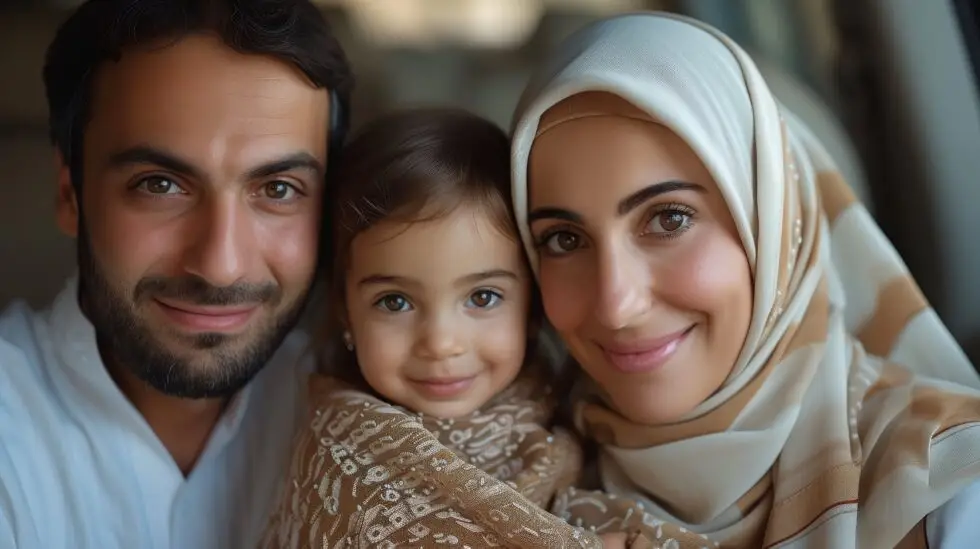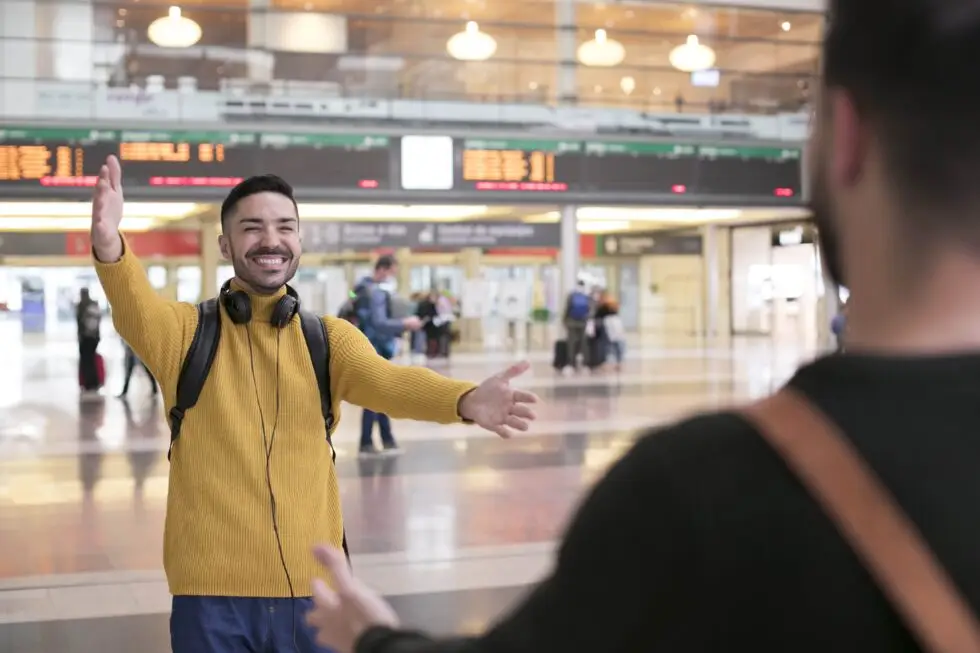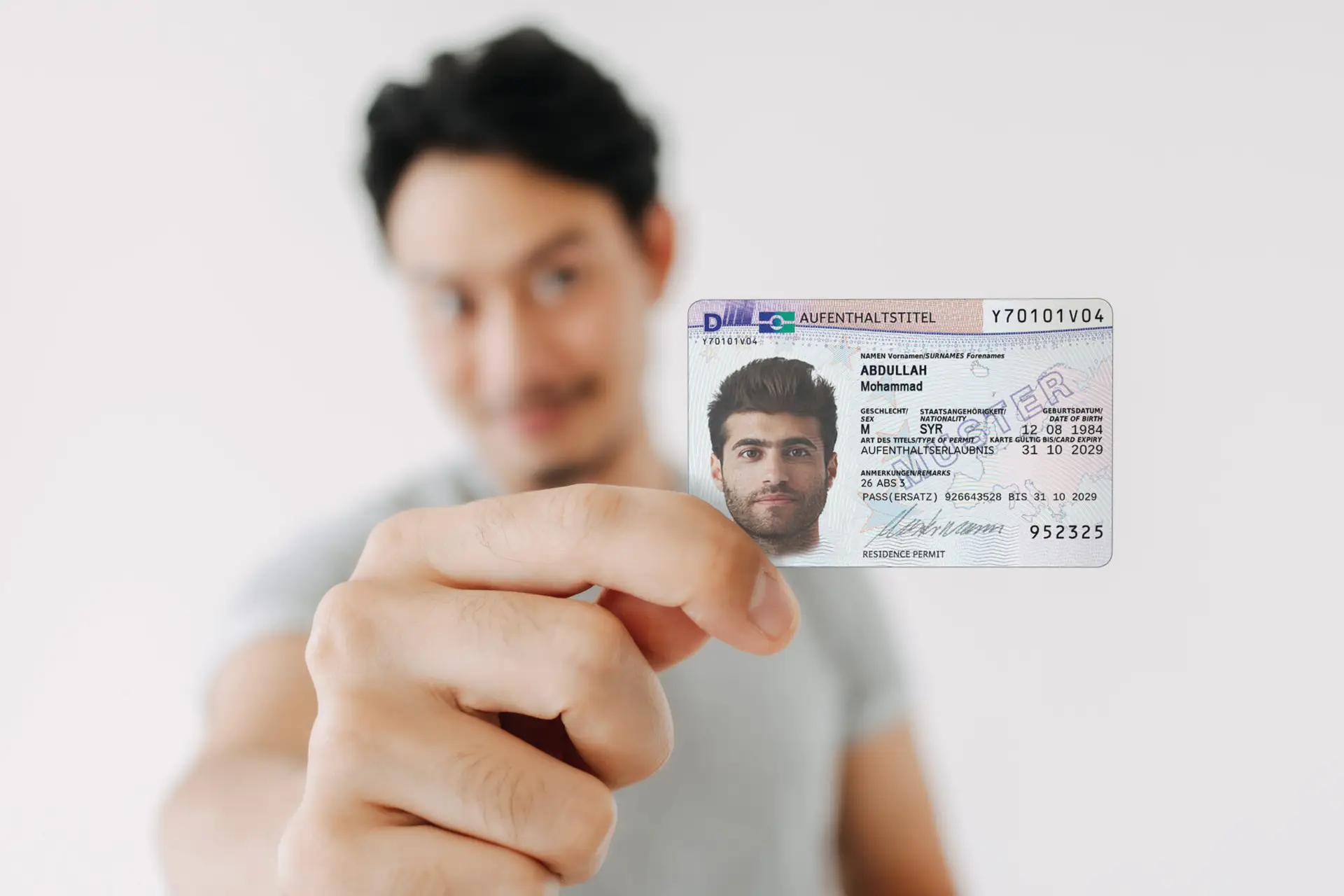Basic understanding of § 22 AufenthG
The Residence permit § 22 AufenthG for admission from abroad enables people in difficult or dangerous life situations to seek protection in Germany and start a new life. The most important proof for you as an applicant is proof of the emergency situation.
Definition and background of § 22 AufenthG
§ Section 22 of the Residence Act (AufenthG), valid since June 27, 2020, allows foreigners from abroad to obtain a residence permit in Germany under certain circumstances. This regulation is aimed in particular at people who:
- Are in need of protection for reasons of international law.
- Seeking protection for urgent humanitarian reasons. A residence permit will be issued if the Federal Ministry of the Interior, Building and Community or a body designated by it declares that admission is in Germany's political interests.
Requirements and necessary documents
In order to successfully apply for a residence permit in accordance with § 22 AufenthG, you must provide evidence of a special emergency situation. The criteria include
- Serious and unavoidable danger to life and limb.
- Close ties to Germany through family members or other close contacts.
- Willingness of persons or organizations in Germany to support the costs of the stay or transport.
You must have these documents ready for the application:
- Valid travel documents or other proof of identity.
- Documentation about the dangerous situation in your home country, such as police reports or medical reports.
- Proof of relationships with persons or organizations in Germany that can offer support.
- A formal acceptance letter from the Federal Ministry of the Interior or a competent authority.
These documents are essential to establish eligibility for a residence permit in accordance with § 22 AufenthG and must be submitted carefully and in full to the competent German diplomatic mission or consular post abroad
The Federal Ministry of the Interior then decides with the diplomatic mission abroad who can enter the country and who can be granted Residence permit in accordance with Section 22 sentence 2 of the Residence Act. In addition to Section 22 of the Residence Act, the legal basis is also Section 5 of the Residence Act on the general requirements for issuing Residence permit.
A visa is issued and allocated with a notification from the Federal Office for Migration and Refugees to Foreigners' office at the selected location in Germany.
Extension of the right of residence
The Residence permit § 22 AufenthG is initially limited to three years. It is important that you apply for an extension at the responsible Foreigners' office before your residence permit expires.
The following documents are important when applying for an extension:
- Proof that the danger to life and limb continues to exist in the home country
- Proof of funding for your stay (benefits, income, etc.).
- Valid passport or passport substitute (identity card, birth certificate, etc.).
- Proof of residence
- Proof of health insurance
The Foreigners' office will then check your application for renewal and extend your Residence permit for three years.

The path to Settlement permit
If you are planning a permanent future in Germany, Settlement permit is a crucial step. This permit allows you to live and work in the country without any time limit, allowing you to become an integral part of German society.
Criteria for the Settlement permit
If you are seeking a Settlement permit in Germany, it is important that you meet certain requirements that emphasize your long-term integration and your contribution to society. The legal basis is § 26 Para. 4 in conjunction with § 9 AufenthG.
Here are the main criteria you should consider:
- Financial independence: You must be able to support yourself without claiming social benefits. You should also prove that you have paid into the pension insurance scheme for at least 60 months.
- Language skills and social integration: You need German language skills at level B1 and should have basic knowledge of the German legal and social system, usually through an integration course.
- Housing situation: You must be able to prove that you have adequate housing for yourself and your family.
- No criminal convictions: You should not have any serious criminal convictions.
Here is an overview table that shows you the criteria and the corresponding proof in accordance with Section 9 (2) AufenthG:
Criterion | Evidence required |
|---|---|
Minimum length of stay | Proof of residence permits, including asylum procedure periods |
Financial independence | Employment contract, proof of pension insurance contributions, proof of income |
Language skills and integration | Zertifikat Deutsch B1, Test Leben in Deutschland or equivalent qualification |
Adequate living space | Tenancy agreement, proof of residence |
Impunity | Certificate of good conduct |
The influence of § 22 AufenthG
Section 22 AufenthG enables you to find protection in Germany and establish an initial legal status. This status can be the starting point for applying for Settlement permit , provided you meet the above requirements.
Particularly noteworthy is:
- Crediting of periods of residence: The periods that you have already spent in Germany with a residence permit in accordance with § 22 AufenthG will be credited to you.
Settlement permit with § 22 AufenthG?
Work opportunities with § 22 AufenthG
Obtaining a residence permit in accordance with § 22 AufenthG not only opens the door to a secure life in Germany, but also offers important opportunities for professional integration. The necessary qualifications and language skills are crucial.
Access to the labor market
Holders of a residence permit in accordance with § 22 AufenthG generally have the right to work in Germany. This includes:
- Immediate access to work: As soon as the residence permit has been issued, you may work without further authorization.
- Self-employment: It is also possible to take up self-employment, provided the necessary conditions and permits are met.
The following points should be considered in order to successfully integrate into the labor market:
- Recognition of qualifications: Many professions in Germany require specific recognition of foreign qualifications. Information on this can be obtained from the Central Office for Foreign Education.
- Language skills: Good German language skills are often crucial for a successful job search. It is advisable to attend appropriate language courses.
- Counseling services: Use advice centers for migrants that can help with job searches, applications and legal issues.
Support and benefits
It is possible for you to apply for social benefits with your Residence permit . You can apply for the following benefits:
- Application for parental allowance according to § 7 BEEG is possible by law. The application must be submitted to the local district office.
- You can also apply for child benefit by law in accordance with § 62 EStG. Again, the application must be submitted locally to the district office.
- Application for social benefits to secure your livelihood (e.g. during studies or in old age).
The key aspects of gainful employment are summarized for you here:
Aspect | Description |
|---|---|
Work access | Direct employment possible, including self-employment |
Recognition of qualifications | Need for recognition of foreign qualifications |
Language requirements | Need for good German language skills for most jobs |
Legal advice | Availability of advice centers to support integration into the labor market |
Traveling with a residence permit from abroad
The residence permit according to § 22 AufenthG not only opens up opportunities within Germany, but also the freedom to travel. However, it is important to know the specific regulations and particularities associated with traveling.
Regulations for trips abroad
As the holder of a residence permit in accordance with § 22 AufenthG, you are generally allowed to travel, but you should note the following points:
- Travel duration: Short-term trips abroad, typically up to 90 days within a 180-day period, are generally possible without any problems. For absences of longer than 6 months, it is important to inform the authorities.
- Travel documents: For travel outside Germany, you will need a valid travel document, such as a passport from your country of origin, together with your German residence permit.
- Visas: Depending on your destination and nationality, you may need a visa. Check with the relevant embassy or consulate before you travel.
Special features when traveling to your home country
Traveling to your home country is generally possible, but careful planning and advice is strongly recommended. Important considerations include:
- Danger on entry: When entering your home country, you may be at risk from the authorities there, especially if the reasons for your departure were of a political nature. There is a risk that your safety may be jeopardized by state or non-state actors.
- Need for advice: It is advisable to seek legal advice before a planned trip to your home country. Specialist advice can help you understand how the trip could affect your safety and what precautions to take.

Family reunification according to § 22 AufenthG
Family reunification under Section 22 of the Residence Act enables families separated by international borders to be reunited. However, this process is complex and requires a comprehensive understanding of the legal requirements and bureaucratic processes.
Difficulty proving humanitarian reasons
Family reunification under Section 22 of the Residence Act depends crucially on the presentation and recognition of humanitarian reasons.
The recognized humanitarian reasons include
- Protection from persecution or serious threats to life or physical integrity.
- Serious medical cases that cannot be treated in the home country.
- Strong dependency relationships between the family members that make continued separation unreasonable.
The reasons must be substantiated by extensive documentation and official expert opinions, which makes the process complicated and time-consuming.
Special restrictions according to § 29 para. 3 AufenthG
It is important to note that family reunification with a person with a residence permit under § 22 AufenthG is subject to special restrictions.
According to § 29 Para. 3 AufenthG, family reunification can only be granted if it is for reasons of international law, humanitarian reasons or to safeguard the political interests of the Federal Republic of Germany. This means that family reunification is only possible in cases where the family unit cannot be restored abroad.
Required documents and procedures
Various steps and documents are required for successful family reunification:
Application:
- The application must be submitted to the relevant German embassy or consulate in the country of origin.
Required documents:
Valid passports of all family members involved.
- Official documents proving the family relationship (e.g. marriage and birth certificates).
- Documented evidence of the humanitarian reasons (e.g. medical reports, threat assessments).
- Proof of the living situation and financial means of the family member living in Germany.
Procedure:
- Submission of documents: All required documents must be submitted completely and correctly.
- Checking the documents: The German diplomatic mission abroad checks the documents for completeness and accuracy.
- Decision: A decision is made on the application based on the documents submitted and the statutory provisions.

Integration and lifestyle in Germany
Successful integration is essential for holders of a residence permit under Section 22 AufenthG in order to settle in Germany in the long term and actively participate in social life. This section highlights important aspects such as language acquisition and cultural adaptation as well as the process of Naturalization.
Cultural integration and language acquisition
Acquiring the German language and understanding the local culture are fundamental steps towards integration. The following elements play an important role here:
- Integration courses: Holders of a residence permit in accordance with § 22 sentence 2 AufenthG can be admitted to integration courses if places are available (in accordance with § 44 para. 4 AufenthG). These courses, which are organized by the Federal Office for Migration and Refugees (BAMF), offer language lessons as well as an insight into German culture, law and society. Please note that there is no statutory right to participate, but you can apply for participation and exemption from costs.
- Cultural events: Participating in local events and engaging in community activities are excellent ways to understand cultural norms and build social networks.
- Volunteering: Volunteering is not only a way to practice the German language, but also to make valuable contributions to the community and make local contacts.
Path to Naturalization with § 22 AufenthG
The Naturalization with a residence permit in accordance with § 22 AufenthG initially requires you to change your residence title, as your Residence permit is blocked for Naturalization .
Here are the key steps along the way:
- Change of residence permit: This is necessary in order to meet the criteria for Naturalization .
- Fulfilment of the naturalization requirements: The requirements include a secure residence status, proof of sufficient knowledge of German, securing a livelihood without welfare benefits, several years of legal residence in Germany and a commitment to the German constitution.
- Application: The application for naturalization is submitted to the relevant citizenship authority and examined individually. Proven integration plays a decisive role here.
Challenges with § 22 AufenthG
You face various challenges with your residence permit in accordance with § 22 AufenthG. These difficulties include the time limit on your residence permit and the complicated issue of family reunification.
Difficulties with the Residence permit
Residence permit in accordance with Section 22 AufenthG is often associated with a number of restrictions, which may affect the following aspects:
- Temporary residence permit: The residence permit under Section 22 AufenthG is often only valid for a limited period of time, which creates uncertainty about the future.
- No direct route to Naturalization: Your Residence permit must be changed for Naturalization .
- Complicated family reunification: Family reunification is only possible in urgent cases where family reunification abroad is not feasible.
Advice and possible solutions
To overcome these challenges, there are various strategies and resources that can help:
- Extension of the residence permit: Regular consultation with a lawyer for Immigration law can help to increase the chances of a successful extension of the residence permit.
- Integration and qualification: Take advantage of vocational training and qualification offers to improve your chances on the job market. Advice centers and local integration courses can provide support.
- Legal advice for travel: Before traveling internationally, it is advisable to seek legal advice to ensure that the trip will not have a negative impact on your residence status.
Here are some practical tips on how you can proactively deal with the challenges:
- Regularly check your residence status: Keep yourself informed about the current laws and regulations and regularly check the validity of your residence permit.
- Build a network: Get involved in community activities and networks that exist specifically for migrants and refugees. These networks often provide valuable support and information.
- Use of counseling services: There are numerous advice centers that offer specialized help for holders of residence permits under § 22 AufenthG. These centers can offer support with administrative, legal and personal issues.

Conclusion and outlook
After an in-depth look at the opportunities and challenges arising from Section 22 AufenthG, it is important to summarize the insights gained and take a look into the future for holders of this residence permit.
Summary of the key points
The most important points of our guide are summarized here:
- Legal basis and requirements: Section 22 of the Residence Act offers protection to people who cannot remain in their home country for reasons of international law or urgent humanitarian reasons. Proof of such an emergency situation and the approval of the Federal Ministry of the Interior are required.
- Documentation requirements: Extensive documentation must be submitted for a successful application, including proof of identity, proof of the dangerous situation and proof of connections to persons or organizations in Germany.
- Integration and lifestyle: Language acquisition and cultural integration are crucial for successful integration into German society. Integration courses play an important role in this, although there is no legal entitlement to them.
- Employment opportunities: The residence permit entitles the holder to take up employment and self-employment in Germany, whereby the recognition of foreign qualifications and good German language skills are often decisive.
- Challenges and solutions: The time limit on residence permits, the complicated process of family reunification and the need to change residence permits for Naturalization are challenges that require special attention.
Future prospects for holders of § 22 AufenthG
Despite the challenges, there are positive prospects for holders of a residence permit under Section 22 AufenthG:
- Stability and security: With the right advice and the use of available resources, holders of this title can develop a long-term perspective in Germany.
- Opportunities for settlement By fulfilling certain criteria, such as earning a living and integrating into society, paths open up to Settlement permit and later to German citizenship.
Holders of Section 22 AufenthG face particular challenges, but with the right support and strategies, they can build a successful and fulfilling future in Germany. It remains important to stay informed, seek legal advice and proactively work on your own situation.
Any questions?
FAQ - Frequently asked questions about § 22 Residence Act
§ Section 22 of the Residence Act (AufenthG) allows foreigners from abroad to obtain a residence permit in Germany under certain circumstances. This applies in particular to persons seeking protection under international law or for urgent humanitarian reasons. The residence permit is issued if the Federal Ministry of the Interior, Building and Community or a body designated by it declares that admission is in Germany's political interests.
A residence permit in accordance with § 22 AufenthG is issued to persons who find themselves in a particularly serious emergency situation. Eligible persons include persons who:
- Are in need of protection for reasons of international law.
- Seeking protection for urgent humanitarian reasons. Prerequisites include a considerable danger to life and limb and a close connection to Germany through family members or other close contacts.
§ Section 22 sentence 2 of the Residence Act specifically regulates the issuing of residence permits in cooperation between the Federal Ministry of the Interior and the diplomatic missions abroad. This paragraph makes it possible for persons who are admitted for the aforementioned reasons (international law or urgent humanitarian reasons) to receive a visa and to be assigned a Residence permit .
Family reunification according to § 22 AufenthG allows the reunification of families separated by international borders under certain conditions. This process requires:
- Proof of humanitarian reasons such as protection from persecution or serious threats.
- Official documents proving family relationships.
- Proof of humanitarian reasons in the form of medical reports or similar. Applications must be submitted to the relevant German embassy or consulate and the decision will be made after a thorough examination of all documents.







